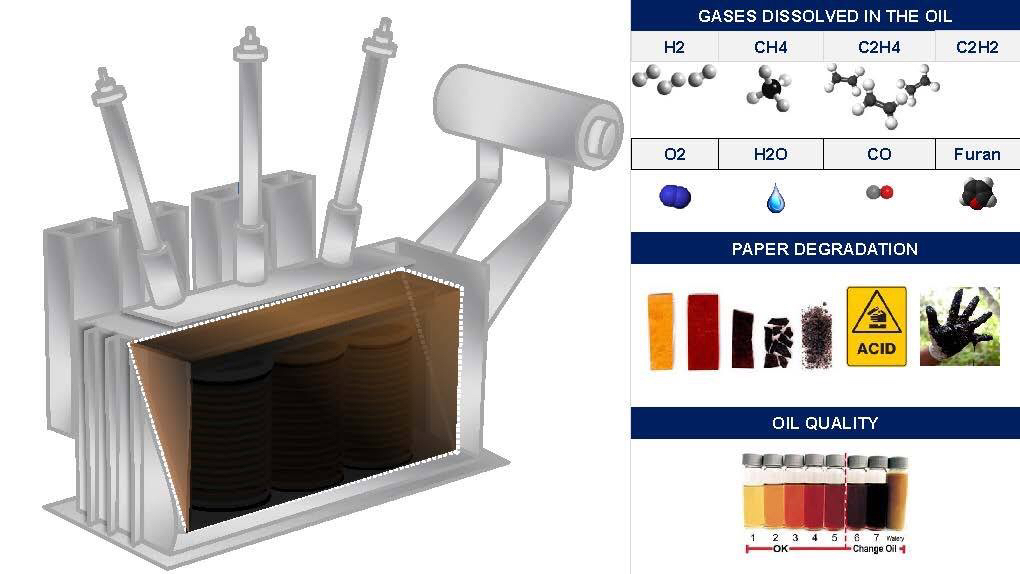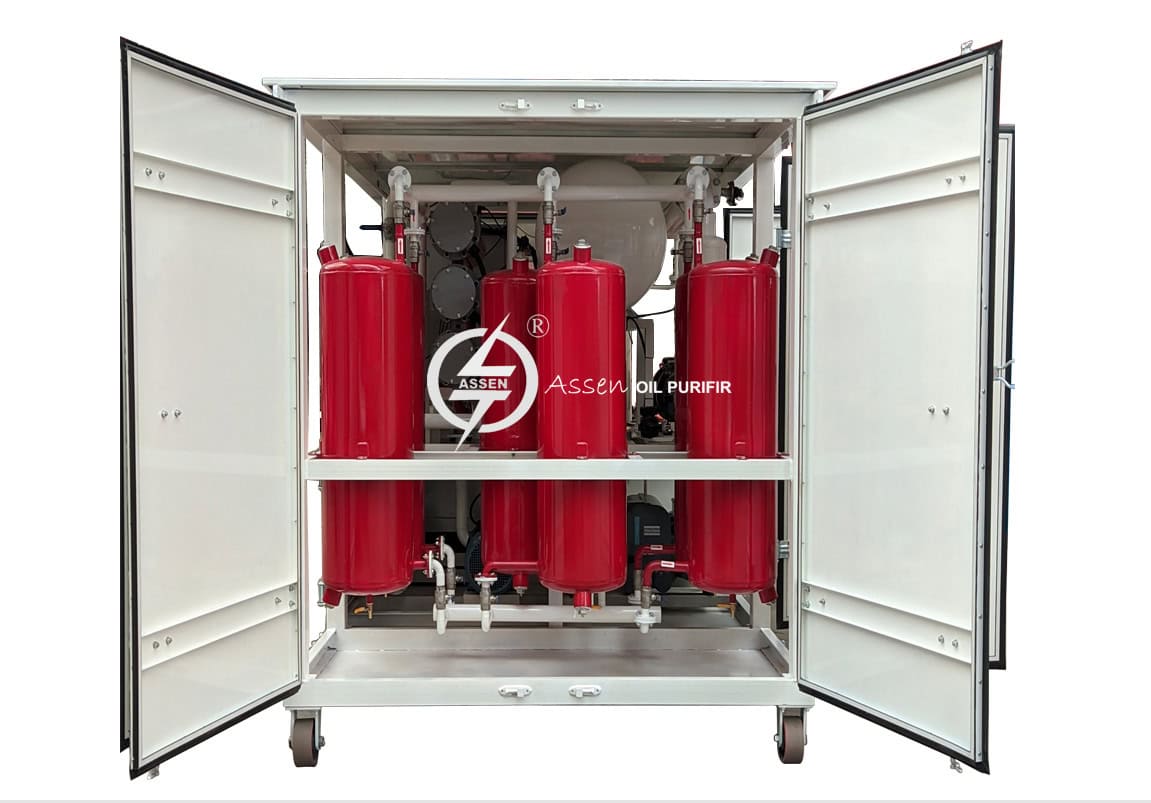Why Regenerated Transformer Oil Is Important for Reliable Power Systems
The vital role of regenerated transformer oil in ensuring the integrity of power systems can not be overemphasized. By bring back the oil's fundamental chemical and physical residential properties, the regeneration process dramatically improves its dielectric stamina and thermal performance. This not only curtails the likelihood of insulation failures however also adds to the longevity and efficiency of transformers. As we check out the multifaceted advantages of this method, the implications for both operational costs and ecological sustainability become progressively obvious, increasing essential inquiries about how these aspects interplay in contemporary electrical facilities.
Relevance of Transformer Oil
Transformer oil plays an important duty in the reliable operation of electric transformers. This specialized oil offers several functions, largely as an insulator and coolant, ensuring the reputable and secure efficiency of transformer systems. Its dielectric homes protect against electric discharges, therefore protecting the integrity of transformer parts. By providing thermal conductivity, transformer oil dissipates warmth produced during electrical procedure, which is crucial for maintaining optimal operating temperatures and prolonging the life expectancy of the tools.
Moreover, transformer oil acts as a barrier against dampness and air, which can result in oxidation and deterioration of transformer materials. The existence of impurities in the oil can considerably impair its insulating homes, resulting in operational inefficiencies and possible devices failure. Routine surveillance and maintenance of transformer oil are consequently vital to making sure the proceeded performance of transformers.
The quality and structure of transformer oil are critical, as they directly impact the dependability and efficiency of the electric systems in which they operate. Recognizing the relevance of transformer oil is important for sectors and utilities reliant on robust power infrastructure, stressing the demand for effective management and regeneration processes to maintain oil integrity over time.
Benefits of Regrowth Process

In addition, the regrowth process minimizes the destruction of oil, which can bring about increased oxidation and acid development. This not just boosts the integrity of the oil but also reduces the danger of transformer failings as a result of insulation malfunction. The enhanced top quality of restored oil allows transformers to operate at optimum levels, inevitably causing improved power effectiveness and reduced operational costs.
Furthermore, the regeneration procedure adds to keeping the total wellness of the power system. Transformers can run longer without the need for oil replacement, useful reference hence decreasing downtime and maintenance efforts. In summary, the regrowth process provides substantial advantages by boosting the longevity and efficiency of transformer oil, ensuring that power systems operate reliably and efficiently in time.
Ecological Effect and Sustainability
The regrowth procedure of transformer oil significantly alleviates ecological concerns associated with oil disposal and waste monitoring. Typical disposal methods for used transformer oil position significant dangers, consisting of soil contamination and water contamination. By regenerating oil, these dangers are markedly minimized, as the process recycles existing sources rather than contributing to waste build-up.
Additionally, regenerated transformer oil can be reused in various applications, which advertises a circular economic situation. This not only minimizes the demand for virgin oil removal-- a process that can be ecologically harmful-- however also saves natural resources. The regrowth process itself uses sophisticated filtering and purification strategies that eliminate hazardous pollutants, ensuring that the final item meets or surpasses sector criteria for efficiency and safety.

Enhancing Transformer Performance
Substantial enhancements in transformer efficiency can be accomplished through using regenerated transformer oil. This oil, generated via sophisticated purification processes, substantially improves the electric insulation residential properties of transformers. By removing contaminations and contaminants that commonly endanger performance, regenerated oil makes sure remarkable dielectric stamina, lowering the threat of electrical failings.
In linked here addition, regenerated transformer oil displays improved thermal conductivity, which helps with effective heat dissipation. This characteristic is vital for keeping optimal operating temperature levels, thus prolonging the life expectancy of transformers and reducing the likelihood of overheating - Transformer Oil Regeneration Plant. Boosted thermal management likewise contributes to the total reliability of power systems
Additionally, the chemical stability of regenerated oil stops the formation of harsh acids and sludge, which can detrimentally influence transformer components. By preserving a cleaner inner setting, this oil decreases upkeep needs and extends service periods.
Cost-Effectiveness and Performance
In terms of cost-effectiveness and efficiency, regenerated transformer oil provides a compelling option to traditional oils. The regrowth process not only gets rid of impurities however likewise restores the oil's initial buildings, prolonging its functional life-span. This durability converts into reduced frequency of oil replacement, thereby decreasing operational expenses gradually.
Furthermore, the use of regrowed oil can significantly decrease power losses related to ineffective insulating liquids. Its remarkable dielectric buildings make sure optimal performance, improving the integrity of power systems. Because of this, organizations benefit from lower upkeep prices and lowered downtime, cultivating a much more effective operational environment.

Final Thought
In conclusion, the regeneration of transformer oil plays a crucial duty in ensuring the reliability and effectiveness of power systems. By recovering the necessary chemical and physical buildings of the oil, this process enhances dielectric toughness and thermal conductivity, inevitably minimizing the danger of insulation break down. The environmental advantages linked with reusing resources contribute to sustainability efforts, while cost-effectiveness and enhanced performance emphasize the requirement of using regenerated transformer oil in modern electric infrastructure.
Transformer oil plays a critical function in the reliable operation of electrical transformers. Routine surveillance and upkeep of transformer oil are for that reason essential to making sure the proceeded performance of transformers.
The regrowth process of transformer oil dramatically minimizes ecological issues connected with oil disposal and waste management. By prolonging the lifecycle of transformer oil, the energy and sources commonly consumed in producing brand-new oil are substantially reduced.Substantial enhancements in transformer performance can be accomplished with the use of regenerated transformer oil.